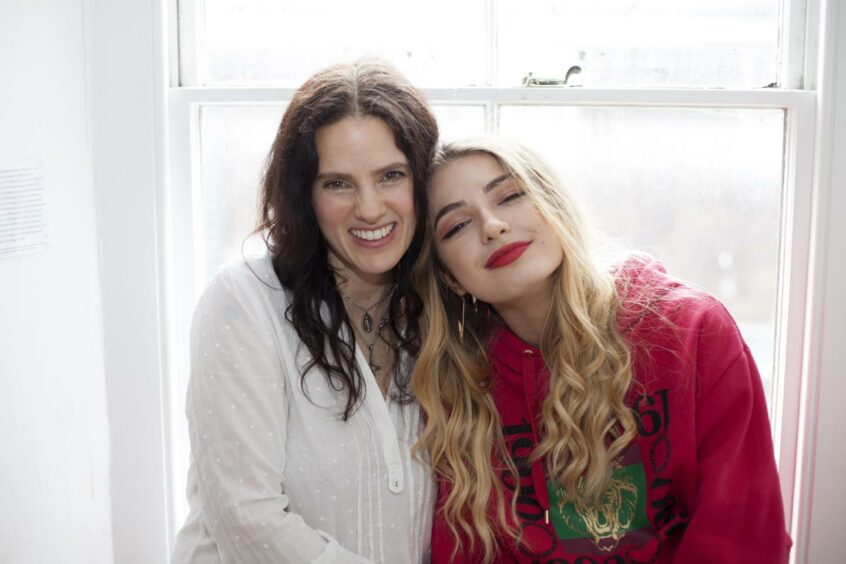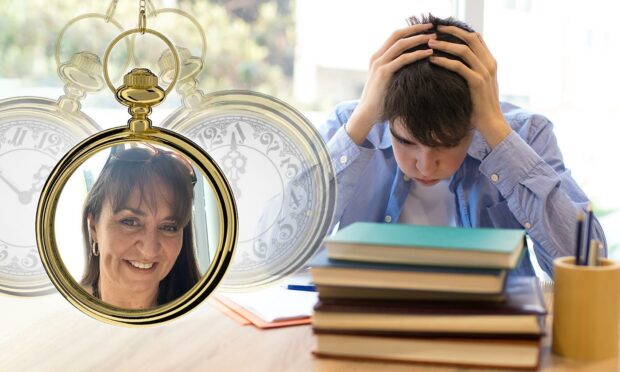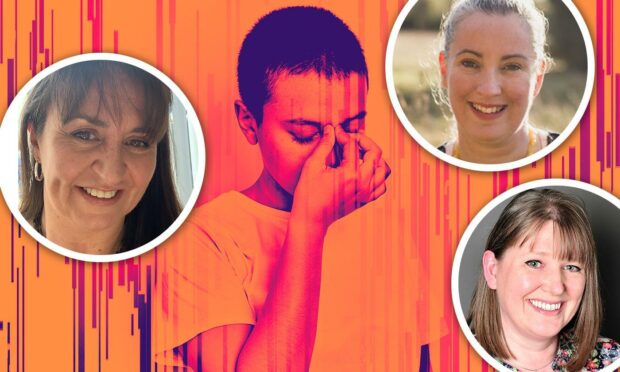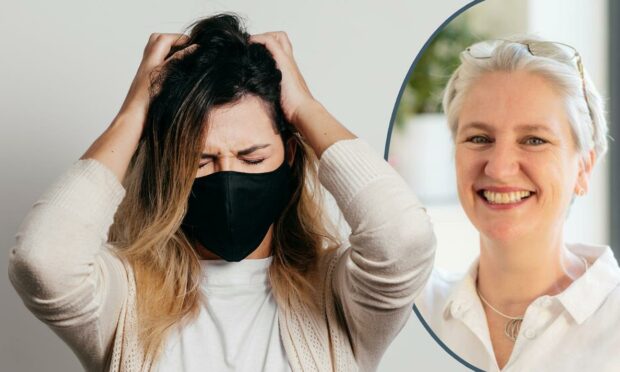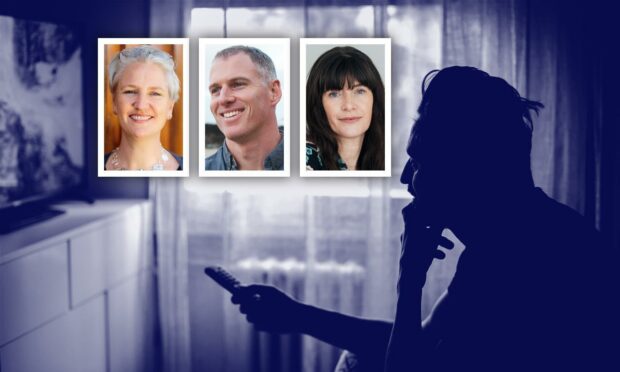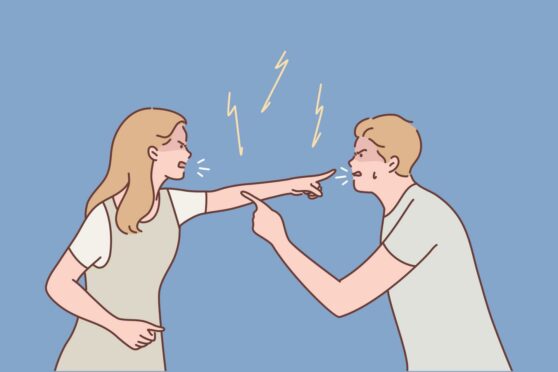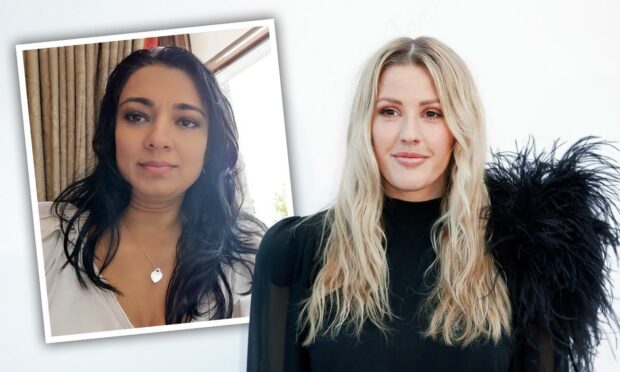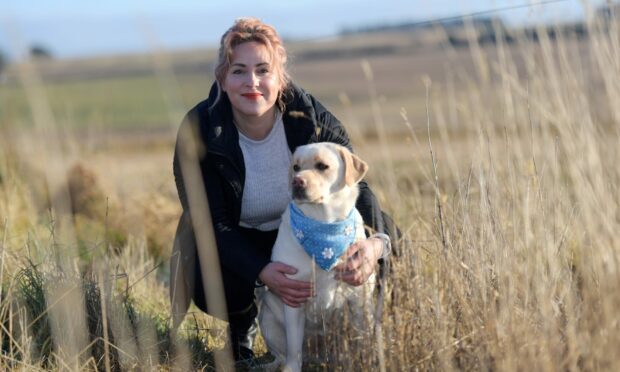Claire Sutton admits it’s a very difficult experience to process when you find out your child is self-harming.
But she soon learned not to react with her own emotions to help her daughter Jade in the best way she could.
It would be a tough time for any parent. And it was a really intense time for Claire who was pregnant, exhausted, and caring for a baby, all while her husband was working away from home.
She is now turning her attention to families in the north-east, helping them through the potentially similar issues she faced herself.
‘There’s so many questions parents have’
“When you first find out your child is hurting themselves deliberately it’s traumatic, it really is,” she says.
“It’s a very difficult thing to process. All parents I speak to are in an emotional mess really, unless it’s something they’ve been dealing with for years and they’ve learnt to cope with it and put it in a box somehow.
“But usually they’re really torn up and they’re frozen about what they should do, how they should behave and who they should talk to.
“They’re wondering if it will get worse, or if it means the young person is going to be struggling with their mental health for years and years.
“There are so many questions that parents have and it’s a whirlwind really.”
Our daughter was self-harming every day
Claire did not notice any warning signs. She only knew her daughter was struggling to keep up with her work at school.
It was only when Jade had an emotional breakdown in year 5 of primary school that her parents realised something was seriously wrong.
Claire and her husband Joel were concerned she could have a learning difficulty and soon afterwards she was diagnosed with ADHD.
Struggling with the undiagnosed condition, she had started cutting herself at the age of 11 and was self-harming every day.
‘She slipped through the cracks of the education system’
“She slipped through the cracks of the education system, the school didn’t recognise that there was something wrong until it was too late for her,” Claire said.
“We moved across country so she could go to a very small private school that supported people with different learning challenges.
“That was a really big financial push for us but we didn’t really know quite what to do.”
Huge role for parents to play in a child’s recovery
It was a long healing process for Jade and her family, who have since moved to Devon.
But Jade, who is now 17, worked through her difficulties with the help of her parents and is teaching younger children how to believe in themselves too.
She’s given presentations on how children can follow their dreams at more than 70 school assemblies.
The Sutton family were so encouraged by her success they launched the Youth Mental Health Foundation.
Their work supports the parents of other young people who self-harm, helping them play a key role in their child’s healing.
A free online course has been designed to help other families cope and is currently being promoted to parents living in Moray.
The Suttons are also working on rolling out workshops led by other young people and hope they can eventually be run in Scotland.
The Horizon Plan course helps parents build up their own toolkit using the experiences of the Sutton family.
Claire says the first part of the course helps parents get on to stable ground.
“What we need to do is to find a way to become a rock that our child can rely on which is a big step from feeling deeply traumatised about what is happening,” Claire explains.
“We talk a lot about the cycle of self-harm in that a young person is overwhelmed by feelings; they’ve tried self-harm as a way to release these overwhelming feelings they don’t know how to process.
“I learned how to not react with my emotions when I knew that she had hurt herself, or treading on eggshells worrying about what to say.
“I learned how to say reassuring things whenever I was tempted to ask how she was, or had she hurt herself.
“Instead I would say ‘I see that you’re feeling really down today, I love you so much and we’re going to get through this’.”
‘I screwed up lots of times’
The course teaches parents how to build up their child’s trust so that they can start to help them through their own healing journey.
For Claire this meant spending more time with Jade as well all doing little things to make her life easier such as buying her favourite food and making her bed.
“I wasn’t perfect,” Claire admits. “I screwed up lots of times – I learned through learning what was best not to do.
“I learned that asking ‘have you had a good day’ was a bad move. I learned to swallow it and say something reaffirming instead.”
‘I helped her find a reason for being’
Jade started to talk to her mother and they began to work through the problems and the long process of healing began.
The teenager started to become interested in nail art and the pair would watch tutorials together and test out their new skills.
Her conversations slowly switched from discussing her problems to chatting about nail products, and her plans for the future.
“If you talk to Jade about her healing, she says that I helped her find a reason for being,” Claire explains. “We worked on helping her find a reason for wanting to get out of bed and wanting to live.
“Slowly over time the goals and everything we started to work on together became more attractive and more magnetic to her than focusing on herself and her own problems.”
Jade’s first big goal was taking part in a beauty pageant competition which focused on charity work and confidence.
She’s since been shortlisted for a national diversity award for being a positive role model for young people.
And she won the Young European International Miss pageant competition in 2018.
‘We’ve been through really big challenges’
The Suttons are keen to share their experiences with other parents to help them cope with the struggles of children self-harming.
“We started this organisation because we have been through really big challenges with self-harm with our own daughter,” Claire, 45, said.
“I’m not a super hero, I’m not a counsellor and most parents aren’t. My journey was all about finding strength that I never knew I had.”
She added: “When I look at other young people today who are struggling, often I don’t find they have a purpose.
“I think that whoever we are, whatever stage we’re at if we don’t have a reason it is a big challenge and it can lead to depression whatever age you are.”
In the north of Scotland alone, there have been close to 9,000 reports of self-harm in the last five years.
Earlier this year Shetland woman Brogan Watt spoke out of her own health difficulties and how her family helped in her recovery when she was self-harming.
If you are a parent whose child is self-harming you can get access to the Horizon Plan course and other free resources here.


